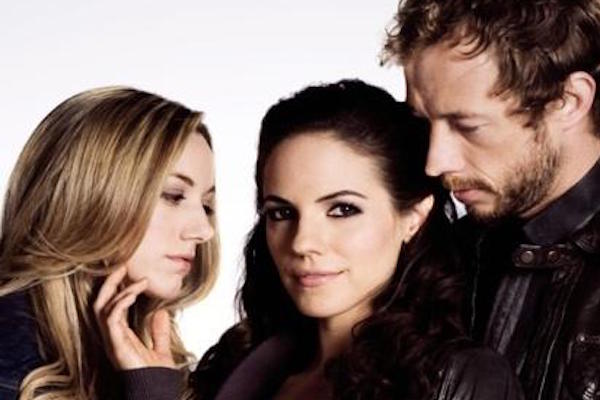A few weeks back, a friend of mine hosted a pregame at her apartment before one of the queer parties that night. A bunch of us got together in her building’s common area, where another group of people were celebrating a birthday. Soon enough we were all co-mingling and getting to know each other. A guy named Flynn caught my attention, and we spent a while chatting. We broke away to continue to mingle, and I immediately began to tell my two friends how cute he was. They properly gushed with me and encouraged me to pursue my interest. I ended up exchanging information with Flynn, but my stomach flipped as I handed him my number. Here I was, with a group of mostly queer women, getting ready to go to a queer party, and I’m flirting with a guy. I felt like a traitor.
Before my first relationship with a woman, I spent two years identifying as bisexual. Other than accepting my interest in both men and women, I wasn’t really involved in the LGBTQ community, nor did I know many other queer women in the city. My daily life didn’t change much. This was largely because I made little effort to become more involved, most likely due to the uncertainty I felt about my own identity. After I started exclusively dating women, my involvement changed entirely. I actively sought for community, and was welcomed with open arms. I slowly began feeling more comfortable identifying as a lesbian. The amount of support and encouragement I received from my friends was incredible. I felt at home.
As I spent more time going to queer events, I started to notice a trend in perspective around dating. It seemed that many women weren’t very comfortable pursuing someone who identified as bisexual. I was even told by a girl I had been seeing that me leaving her for a man was “her worst nightmare.” Another friend mentioned that while using dating apps, she swipes left on women that identify as anything other than gay/lesbian. There exists this perspective that bisexual women cannot be trusted.
This is by no means the consensus in the queer women dating world, but it for sure has a significant presence. The idea that bi women are more promiscuous, are more likely to cheat, and aren’t “truly gay” is pervasive within and beyond D.C. And as I continued to meet new people and date around, I sometimes saw myself succumbing to this reasoning. But why?
The very thing that makes me feel so comfortable in D.C.’s LGBTQ community – inclusion – is not always practiced among and between its members. Many people convene with other queer people not only to escape discrimination elsewhere, but in turn to feel wholly accepted. Why is it that bi women are deprived of that acceptance? They are often identified and categorized in relation to another human being – their significant other – rather than by their own identity. A woman who claims she is bi while seeing men may not be believed or trusted.
Queer women already face so much discrimination from the larger public community. “You’re too hot to be gay.” “Want to join me and my girlfriend for some fun?” “You’re just going through a phase.” Same-sex interest in women is wildly oversexualized and fetishized as it is. When women turn toward the queer community they should feel nothing but acceptance. Instead, they can be subjected to even more unfounded stereotypes by fellow women.
ENOUGH. We as a community talk a very big game about inclusion and acceptance. It’s time we walk the walk.
Recently, there have been some big steps toward recognizing the complexity and fluidity of the gender spectrum. As of last month, Tinder has added 37 new gender options from which people can now choose. The HER app has had similar features for a while now. More people seem to be comfortable with not identifying at all (including myself). But what does it say about us as a community if we preach acceptance, yet marginalize a subsection of our own people? Just as we accept the concept of blurred lines along a complex gender spectrum, we must also accept those that identify under one category, even if that includes interest in the opposite sex. One’s sexuality is not a commitment. It is not something one can betray.
Did I end up seeing Flynn after that night? No. But who’s to say what gender my next significant other will be? I can take a guess (ahem, hello ladies), but nothing is certain. Does that make me bisexual? To be perfectly honest, I have no idea. I don’t identify because I haven’t found a word that I believe truly represents my orientation. But most of the time, I will refer to myself as a lesbian in mixed company because it’s “easier.” Why? Because there is a stigma associated with bisexuality, among other non-binary orientations (neither gay nor straight). It is easier because I’m not entirely sure if I would be treated the same had I outwardly identified as bisexual. That in itself is the problem.
I am lucky enough to have surrounded myself with friends who not only respect bisexuality, but also some struggle with the same questions as I do. Oddly enough, as a person who likes answers to everything, I’ve become comfortable with the uncertainty of my identity. As my choice not to choose is respected in the community, so too should a woman’s choice to identify as bisexual. Let’s all work to make this community as inclusive and accepting as the values it is built upon.
Tune in to Episode 33 of Tagg Nation to hear what the podcast hosts had to say:


